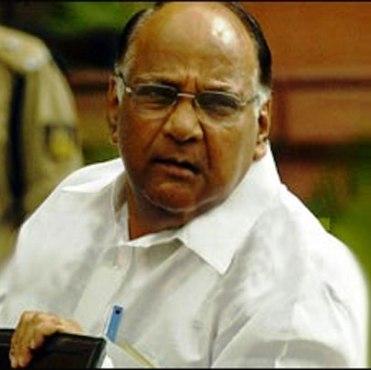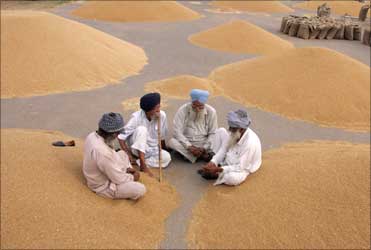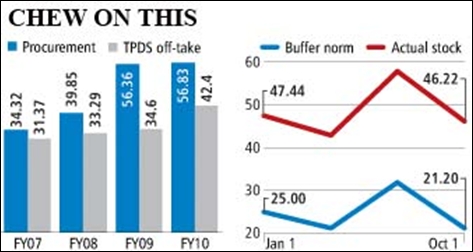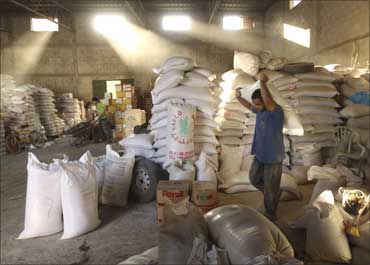BS Reporter in New Delhi
In the first sign of dissent within the ruling UPA government, Agriculture & Food Minister Sharad Pawar on Wednesday indicated that covering two-thirds of the population under the proposed Food Security Bill was not feasible.
The veteran Maratha leader told the Economic Editors' Conference that the National Advisory Council proposal would entail the supply of 62.1 million tonnes (mt) in subsidised foodgrain.
This estimate, he said, did not include allocations to other welfare schemes, the country's food buffer and strategic reserves.
...Cheap foodgrains to 75% of Indians not feasible: Pawar
Image: Farmers sit beside heaps of wheat at a grain market in Chandigarh.Photographs: Ajay Verma/Reuters.
"We are adopting a cautious approach... Irrespective of the fine print, it is certain that our outgo from the public distribution system will increase substantially," Pawar said.
Cheap foodgrains to 75% of Indians not feasible: Pawar
Image: Food grain stocks.Pawar's estimates assume the coverage of 97 million below-the-poverty-line families and 89 million other families. Under the proposed Food Security Bill, the government would provide each family 35 kg of wheat and rice every month at a subsidised rate of Rs 3 a kg to cover 75 per cent of the population.
Pawar clarified that these were rough estimates, as his ministry was yet to receive a copy of the NAC recommendations.
Cheap foodgrains to 75% of Indians not feasible: Pawar
Image: A man carries a sack of wheat.Photographs: Mohammed Salem/Reuters.
Over the last few years, government procurement has increased, thanks to a rise in the procurement price, as well as controls on buying by private companies and traders. Pawar also ruled out the export of foodgrain as suggested by economists, including Chief Economic Adviser Kaushik Basu, citing the requirements of the proposed Food Security Bill.






article